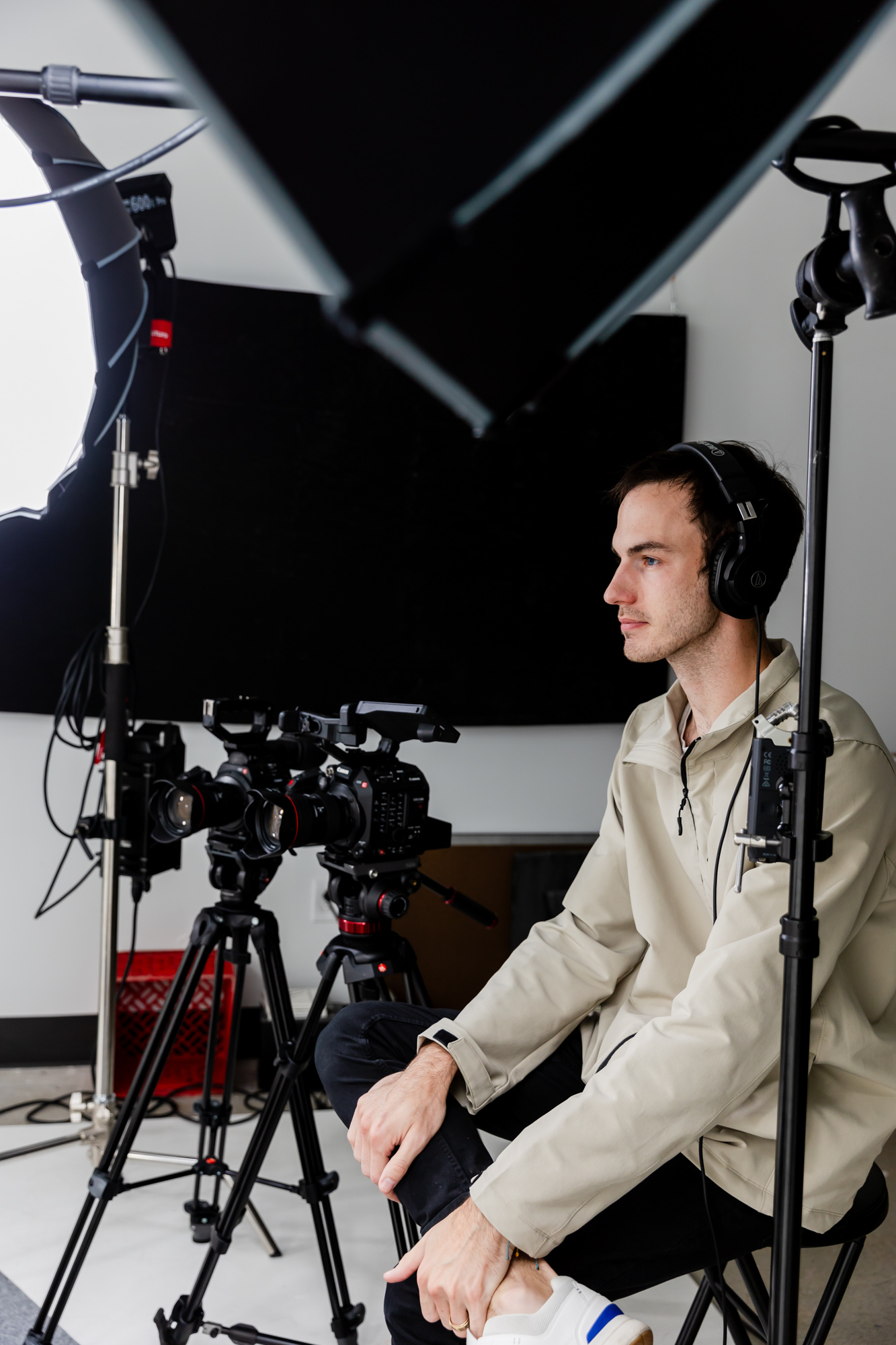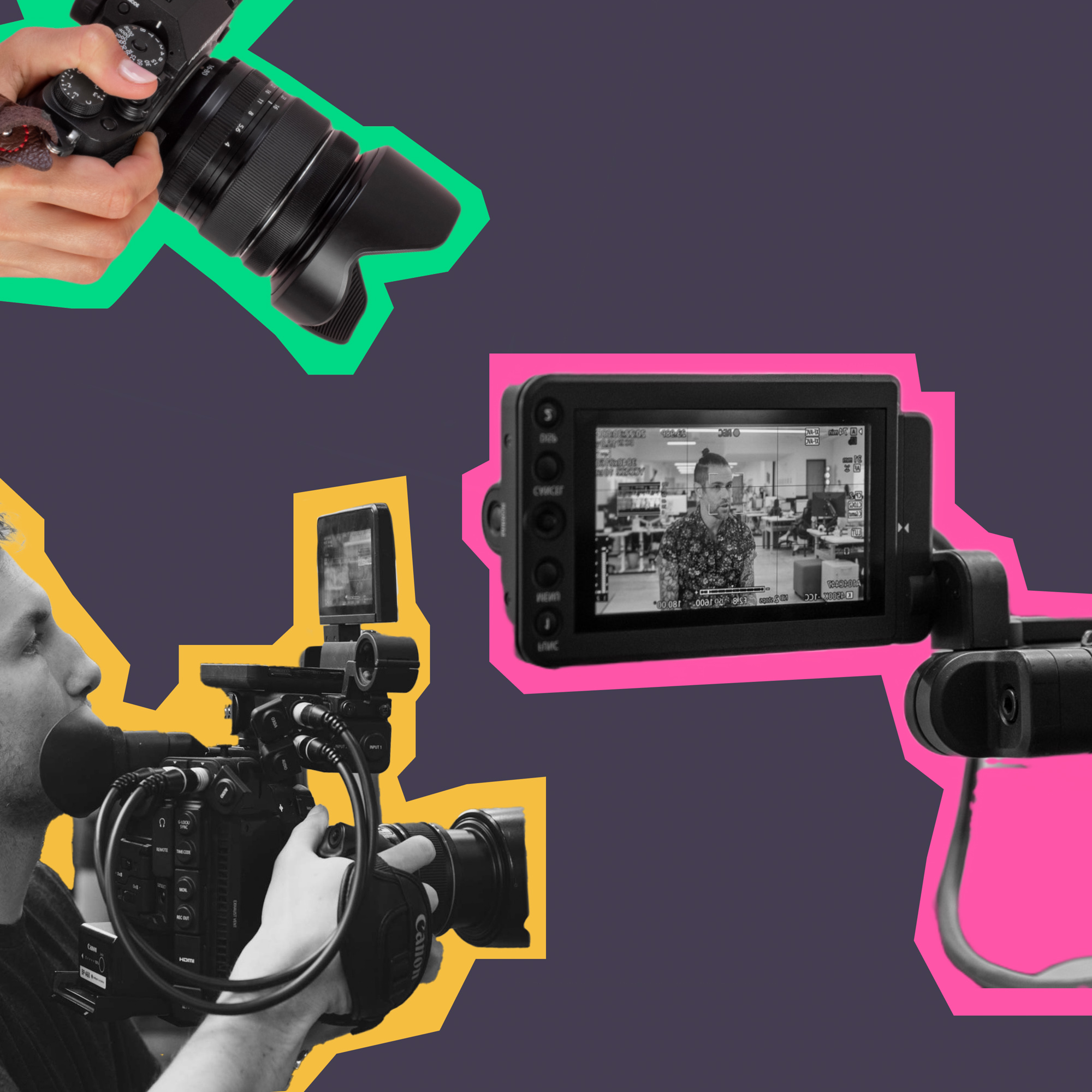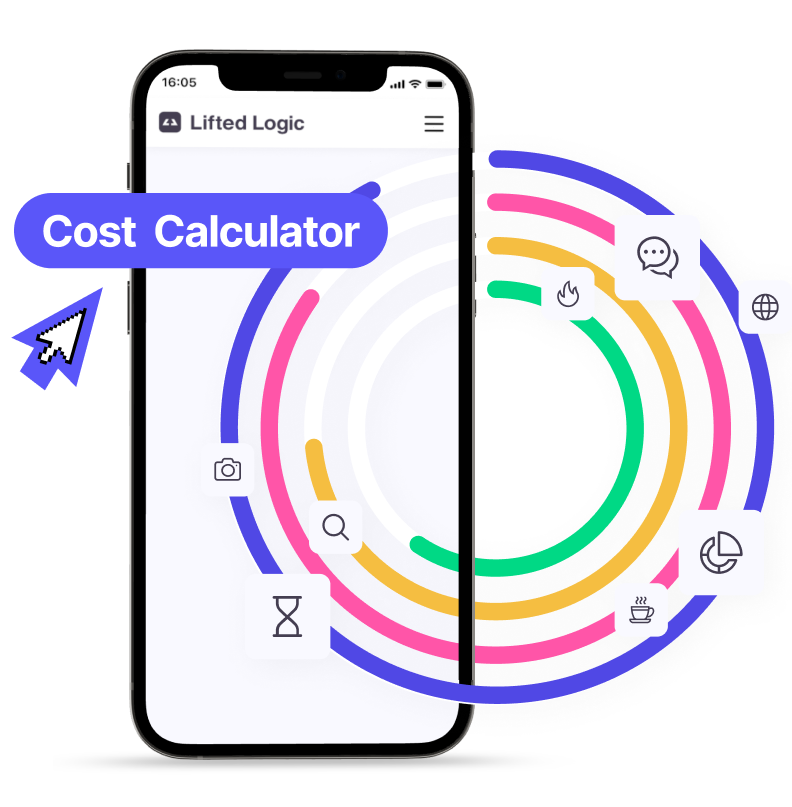You enjoy talking to people, relating to them about topics and sharing knowledge, curiosity, and energy as you chat. It’s how we people, people. Conversations.
They can be purely entertaining, or informative, or a combination. Good storytellers spin a tale that pulls you in, regardless of whether it’s fact or fiction. Since you hear the story, you get to choose which of these story topics receives your attention.
Now you know why podcasting works. Conversations that capture the attention of a listener, and retain it for the value the listener attributes to it—entertainment, information, or both.
Because of your knowledge on a subject, or your jocularity, or just the sound of your voice, you may have already had someone tell you that “you should do that as a podcast!” Cool. You’re thinking about it.
But a huge question jumps up at the start: why would I want to do a podcast?
Let’s dig into the possible reasons.
What is a Podcast? A Deeper Look
There are at least 2 million podcasts worldwide. Some estimates push that to over 4 million. And in 2016, the estimate for a number of podcasts stood at almost 550,000. That’s a 700 to 800 percent increase, which tells you something about the popularity of podcast creation!
So what is this audio thing that a bazillion people and companies are doing?
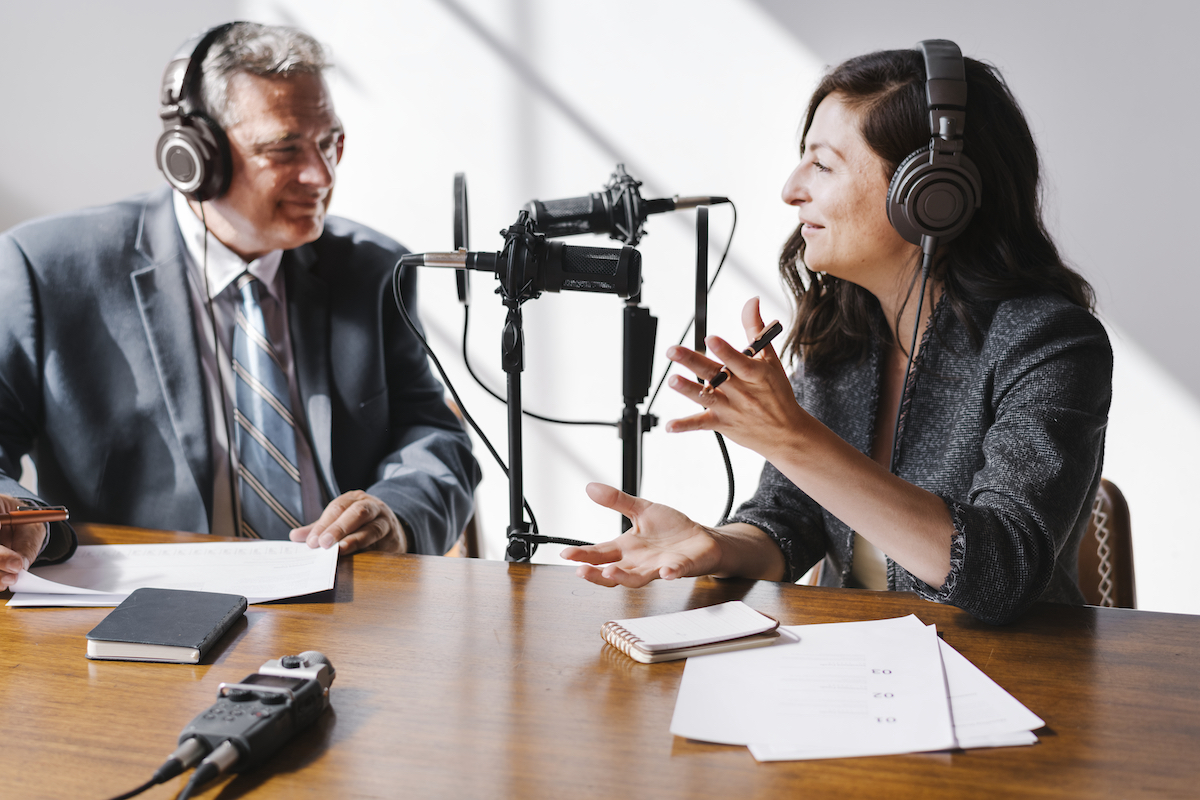
Think about classic “talk radio.” People listen to talk radio for the conversations between hosts, which frequently include special guests and/or callers. Usually the radio station offers a point of view/lifestyle endorsement that generally agrees with the listeners’ own values. The station hosts, and the listeners, have something in common.
(Note: sometimes listeners tune-in to someone they hate so that they can enjoy the thrill of hating them more, but we’re not interested in this tiny, odd clique of anger junkies. They’re just no fun at all at parties.)
A podcast is similar, but in an a la carte setting. Instead of tuning in and waiting for whatever the station wishes to dish out that day:
- The listener chooses the subject matter that interests them.
- They find a show with hosts they enjoy (or at least can decently endure).
- They subscribe via their listening service (Apple, Spotify, etc.) or through RSS (really simple syndication).
- They listen whenever they want, any time, any day.
If you want to strip all the nuance and functionality from it, the definition boils down to this: a podcast is a digital program people can download over the internet.
Why are there so many podcasts?
Podcasting ranges from grass-roots, recorded-on-a-phone audio episodes to lavishly produced big-money episodes available in video and audio. Many podcasts have no cost, whereas others have a pay-to-play model.
Production entities run from a single person doing their own thing just for the love of it, to large corporations investing heavy dollars in their podcast platform for marketing revenue generation and/or customer engagement.
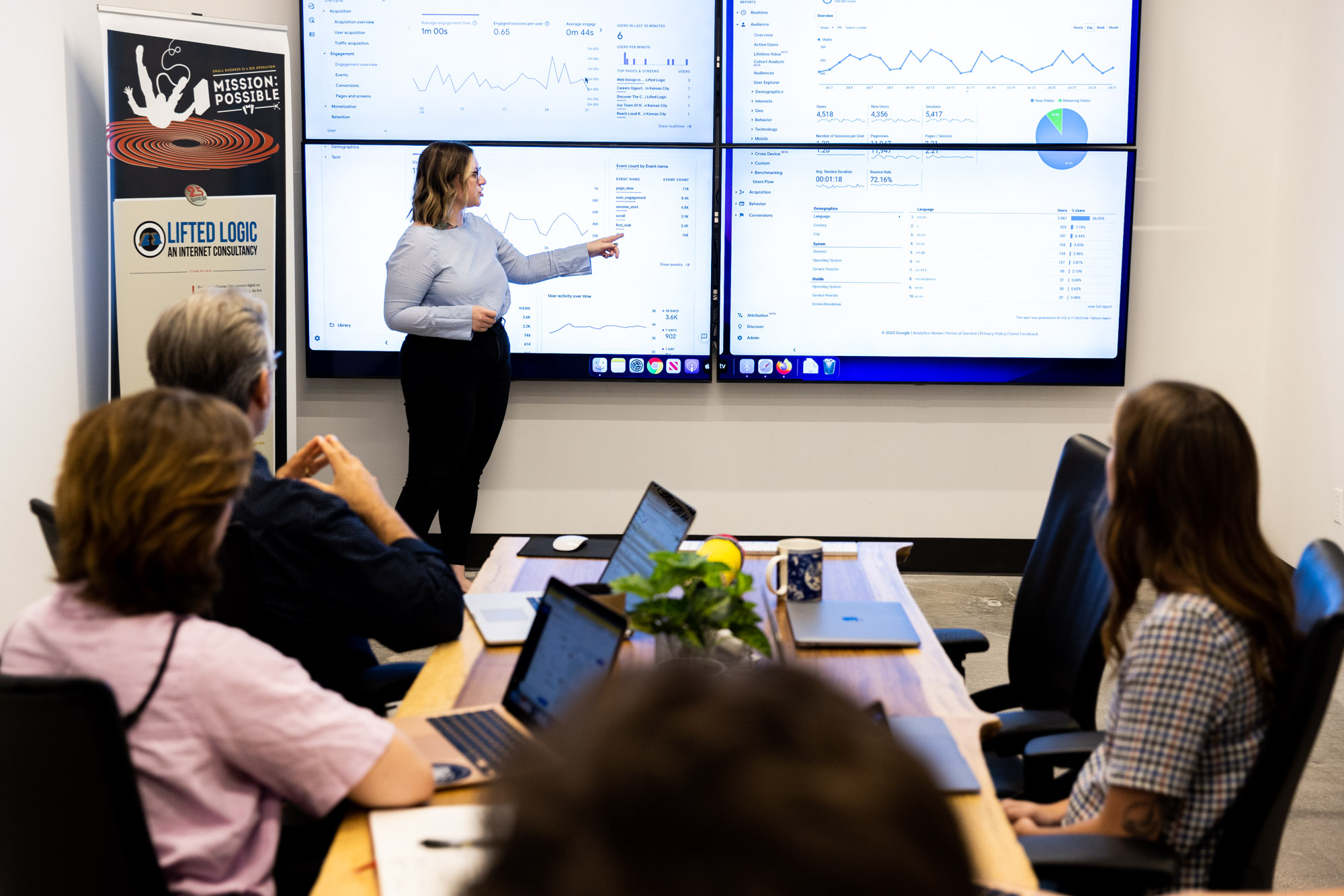
With this broad range of players, what’s the game? It’s whatever interests the listener. Seriously. Want to listen to a podcast that reviews journal articles about toenail fungus? It’s out there. Want a podcast so boring that by design it puts you to sleep? It’s out there. Want a podcast that spends the entire time complaining about other podcasts? Yup. It’s out there!
It could be about anything. Literally, anything. On an Envato.com list list of popular podcast trends, the top 5 include (in descending order):
- Food
- Sports
- News
- Talk Shows
- True Crime
Other big topics include supernatural subjects, audio theater (dramatized fiction), and activism. See your boat out there? Enjoying podcasts involves whatever floats it.
Why would I want to record a podcast?
Podcasts require effort. You need to have a subject, something upon which to record it, software to manipulate it, and internet access to upload it to some distribution channel.
Those are the basics. There’s a lot more to it for a successful podcast, but we’ll talk more about that in upcoming blogs.
At this point, you’ll want to figure out the flavor of podcast for which you’re willing to do this much effort on a consistent basis. IMHO, there are two flavors of podcast goodness: For the Love, and For the Results.
For the Love Podcasting
You just looooooove creating macrame can koozies, amiright? You could talk about it all day. You know the process inside and out, and could do it in your sleep…and maybe sometimes do. #lovemesomemacremekoozies #doyouevenmacramebro?

You want to share this joy, but let’s be honest: your circle of friends and colleagues might get glaze-eyed the moment you start discussing the R-value and liquid permeability of muskox yarn for maximum koozie performance.
So you choose to share your knowledge, and your excitement, through a podcast! You’ll sling it onto the web, and like a long-tail sloth lumbering across the internet foliage, you hope a few listeners subscribe.
You do this for the love of the subject, and perhaps even for the love of saying “I have a podcast!” You’re not worried about any other results than having shared your passion, including any marketing or revenue goals.
Your goal? Telling the world how much you love making macrame koozies, and sharing your expertise therein. The rest is just macrame gravy.
For the Results Podcasting
Continuing with our professional koozie example, you still love makin’ the mac. However, you might have an Etsy store. You sell these bad boys to ironic bikers unafraid to show their softer thermal side.
Your wish to commit to a podcast could be for a number of results-oriented reasons:
- Marketing for your koozie sales
- Provides an interested target audience for yarn sellers
- Position yourself a macrame afficionado for endorsements
- Create content for SEO
- Generate traffic to your website
- Build brand authority (“Killuh Koozies® your handmade beer buddies. Bro, it ain’t sh*t if it ain’t knit.”)
Sorry about that last one. I’ve been thinking about macrame koozies waaaaay too much while writing this.
Sure, there’s love. But so very many podcasts fail because there seems to be no reward for the effort. It boils down to: why am I spending all this time, effort, and possibly money? Love frequently isn’t enough.
A results-driven podcast can provide you measurable metrics to know your podcast is working. Ultimately these metrics prove to you (and your sponsors) that the podcast is fiscally worth all that time, cost, and marketing effort.
Ultimately, you have to decide why.
Whether it’s just because, or business based, your podcast subject matter requires you to:
- Be interested enough to keep it going
- Know what measures will make you feel successful
- Understand it’s a long-term commitment
Once you know the why, we can begin to explore the how. That’s coming up in future blogs. In the meantime, tune in to toe fungus, and excuse me while I figure out how to macrame some big, bad biker koozies. Killuh Koozies. I think I’m onto something here…
Learn more about podcasting from Lifted Logic
I’ve already got Part 2 up—so if after all of this you’re convinced you should start a podcast, check it out: Podcasting, Part 2: Of Mics & Mixers
You can also shoot us a message if that’s easier.


